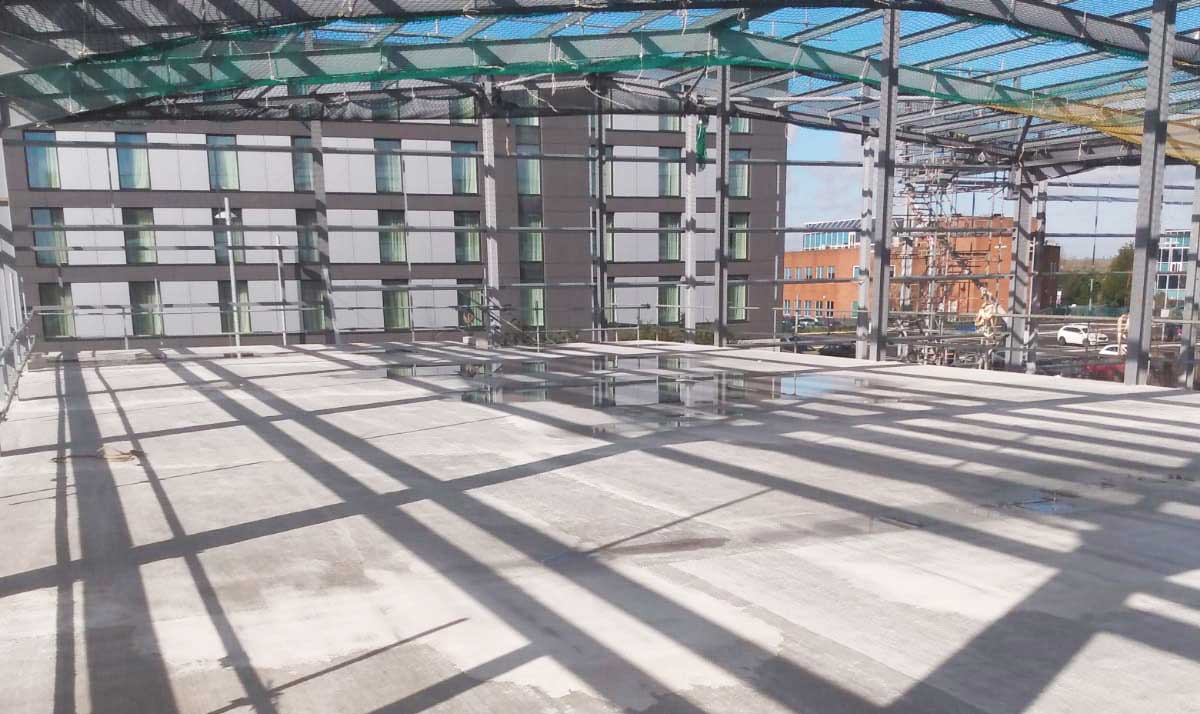Unlocking the Ecological Advantages of Recycled Composites in Building And Construction and Style
In the world of building and construction and layout, the application of recycled composites holds significant guarantee for improving sustainability techniques and minimizing environmental influence. The shift towards a more sustainable future in these industries hinges on unlocking the full possibility of recycled compounds.

Ecological Impact Decrease
The decrease of environmental effect through the use of recycled composites in building and construction and layout plays an important role in sustainable techniques. By incorporating recycled compounds right into structure materials, the building and construction industry can significantly lower its carbon footprint and add to an extra environment-friendly future. These sustainable materials, made from repurposed plastics, wood fibers, or various other recycled aspects, offer a feasible alternative to typical building and construction products without compromising on quality or longevity.
Recycled composites aid draw away waste from landfills and minimize the need for extracting basic materials, thus saving all-natural resources. Furthermore, the production procedure of these compounds frequently takes in much less energy and releases less greenhouse gases contrasted to creating virgin products (composites). This shift towards making use of recycled composites not just decreases ecological injury however also promotes a round economic climate by encouraging the reuse of materials that would certainly otherwise be thrown out
Waste Minimization
With an emphasis on minimizing waste in building and layout, the combination of recycled compounds supplies a sustainable solution to minimize ecological influence. Waste minimization is an essential aspect of lasting techniques, and using recycled compounds presents an opportunity to accomplish this objective properly. By utilizing materials that have already served their initial function, such as recycled plastics or redeemed timber fibers, the building and construction and design industries can substantially lower the quantity of waste produced and sent out to land fills.
Recycled compounds have the possible to divert considerable amounts of waste from standard disposal approaches, adding to a much more round economic situation where sources are made use of successfully. Additionally, the manufacturing process of recycled composites usually consumes much less energy and produces less exhausts contrasted to virgin products, additionally lowering the environmental footprint of construction and style tasks.
Carrying out waste reduction approaches via the unification of recycled compounds not just assists in saving natural deposits but also advertises an extra sustainable method to building and designing for a greener future.
Power Conservation
Incorporating recycled compounds not just minimizes waste in building and layout however likewise plays a critical function in improving energy preservation methods within the industry. Using recycled compounds in construction can significantly add to energy conservation with various methods. First of all, the production of virgin products usually requires substantial power inputs, whereas using recycled compounds takes in much less energy, therefore minimizing overall power intake. Additionally, integrating recycled compounds can add to much better insulation homes in structures, decreasing the demand for excessive heating or air conditioning, and consequently reducing power use for climate control. The lightweight nature of many recycled compounds can lead to lighter frameworks, requiring less Web Site energy for transport and installment. By promoting using recycled composites in building and construction and design, the industry can make considerable strides in the direction of attaining energy efficiency and minimizing its carbon impact, inevitably adding to a more sustainable built setting.
Carbon Impact Reduction
Enhancing sustainability practices through the utilization of recycled compounds in building and style considerably reduces the carbon impact of the industry. By including recycled materials into the manufacturing of compounds, the requirement for virgin sources reduces, resulting in lower power usage and greenhouse gas emissions linked with standard manufacturing processes. This decrease in carbon footprint is crucial in combating environment modification and promoting an extra eco-friendly strategy to construction and layout.
Moreover, making use of recycled compounds likewise aids in drawing away waste from landfills, consequently reducing the ecological effect of disposal and promoting her response a circular economic climate. The carbon footprint decrease achieved with the adoption of recycled composites straightens with the worldwide press towards lasting practices and the reduction of commercial exhausts. It showcases a dedication to accountable source administration and a change towards greener options in the construction and style industries. Inevitably, by prioritizing the combination of recycled compounds, the industry can make considerable strides in decreasing its carbon footprint and adding to an extra sustainable future.
Sustainable Future
The assimilation of recycled composites in construction and layout not only addresses immediate ecological concerns yet also lays a strong foundation for a lasting future in the industry. By including recycled look at this site compounds into structure materials and items, the construction and style sectors can dramatically decrease their dependence on virgin sources, causing a more circular economy. This shift in the direction of sustainability is important for minimizing the environmental effect of traditional building and construction practices, which commonly result in high levels of waste generation and source deficiency.

Final Thought
In verdict, recycled compounds use considerable environmental advantages in building and design by decreasing environmental impact, minimizing waste, preserving power, reducing carbon footprint, and promoting a lasting future. Welcoming making use of recycled composites can add to an extra environmentally-friendly technique to building and design, inevitably leading to a much more lasting and greener future for all.
The reduction of ecological impact with the usage of recycled compounds in building and design plays an important role in lasting methods.With a focus on minimizing waste in construction and style, the integration of recycled compounds supplies a lasting remedy to minimize environmental impact. By advertising the use of recycled composites in building and construction and design, the sector can make considerable strides towards attaining energy performance and decreasing its carbon impact, eventually adding to a much more lasting developed setting.
